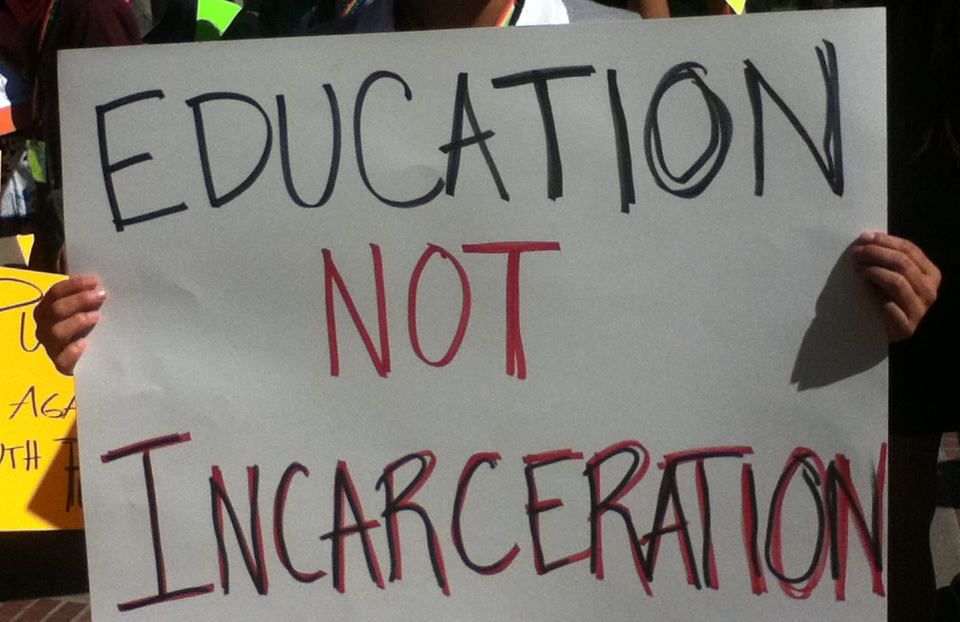http://www.huffingtonpost.com/entry/the-school-to-prison-pipeline-is-an-epidemic-that-can-be-cured_us_57bc822be4b00d9c3a1a3934
In the article The School-To-Prison Pipeline Is An Epidemic That Can Be Cured, writer Kevin Gilbert explains how there needs to be a shift in approach to disciplinary scenarios in public schools and communities of color. Gilbert writes that “Too often, students are suspended, expelled or even arrested for what is simply classroom disruption.” Therefore, there needs to be an alternative approach to the social differences between the ‘disruptive’ students and the regular student who may not be facing a many micro-aggressions on a daily basis. An effective response to this issue has been created by the National Education Association. As Gilbert explains, “In 2013, the National Education Association (NEA) made a formal commitment to end the school-to-prison pipeline” by having “NEA leaders and members [help] raise awareness of the issue, shape district and state policies, and provide resources on restorative practices.” Furthermore, NEA created a five-principle guideline to abide by while combating the over-policing of urban students. The five principles are “Eliminating Disparities in Discipline Practices,” “Creating a Supportive & Nurturing School Climate,” “Professional Training & Development,” “Partnerships & Community Engagement,” and “Student & Family Engagement.” Gilbert ends the article with the most important statement regarding the purpose behind this dismantling effort, which is: “This work is part of our core mission: GREAT PUBLIC SCHOOLS FOR EVERY STUDENT.”
http://blogs.edweek.org/edweek/leadership_360/2017/04/leaders_we_can_interrupt_the_school_to_prison_pipeline.html
In “Leaders, We Can Interrupt the School-to-Prison Pipeline,” authors Jill Berkowicz and Ann Myers explain the important role of teachers in regards to dismantling the school-to-prison pipeline. They mention that “The phrase ‘tough on crime’ sits atop a silent undertone. It is not about early intervention or after school programs or drug prevention programs. It is about punishments and putting ‘them’ away.” Therefore, there needs to be an alternative mindset when considering various responses to disruptive acts within an academic space. Berkowicz and Myers touch the issue on the head when they write, “The absence of responsible, loving adults in the child’s world, the loss of income and the unrelenting, pounding force of poverty have an extraordinary effect on a child’s well-being and ability to learn.” So, both authors believe that teachers are to fulfill these roles which are absent within the lives of many urban students due to racial and systematic policies. So ultimately, they both end their argument with a call for urban teachers to “elevate the value of developing self-awareness, self-management, social awareness, relationship skills and responsible decision-making within the curriculum in classrooms, behaviors and expectations in extra curricular activities and in hallways.” Furthermore, they emphasize that although advanced educational technology is important as an additional/alternative method to contemporary teaching, robots cannot remedy the problem of the lack of affection being directed towards urban students.
